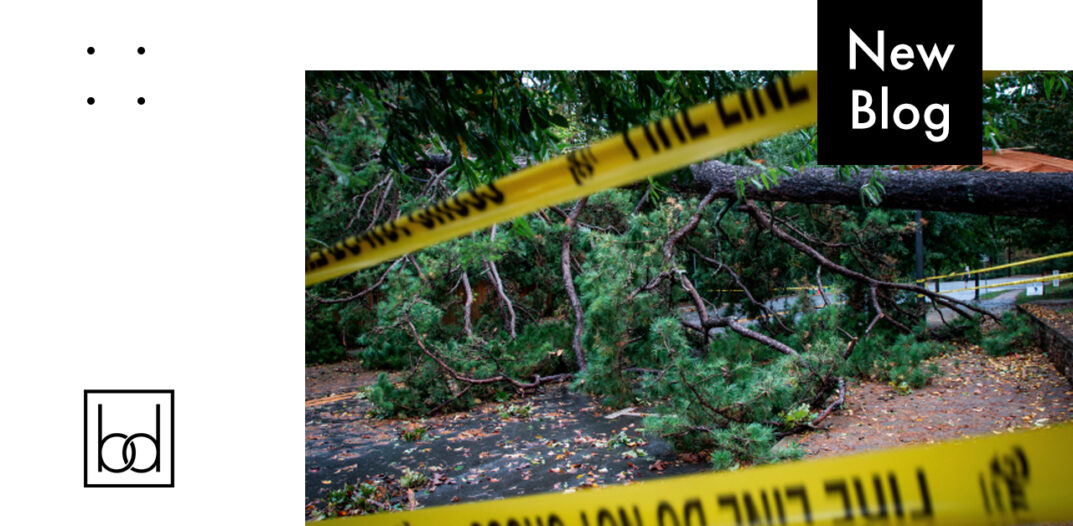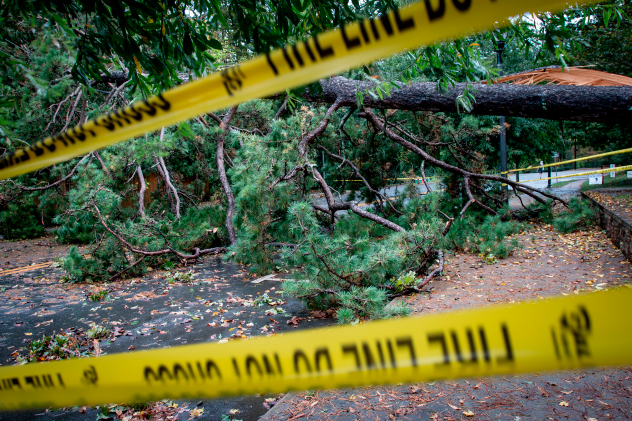
Living in a neighborhood has distinctive advantages over living on a solitary stretch of land. Amenities such as tennis and basketball courts, playgrounds, a pool and clubhouse are major selling points, especially for families with young children. Sidewalks and quiet streets with less traffic than main roads make us feel safe as we walk and ride bikes, and such streets are often more picturesque. Add to this the social aspect of having neighbors of all ages to socialize with and it is no wonder that subdivisions are such a popular choice for those looking for a new home.
With so many people living so close together, what could go wrong? There are a few things, unfortunately. No matter where you live, you technically have neighbors, but when the lots are larger and more spread out, you are less likely to run into significant issues. When the property lines are on smaller lots, you have to be much more concerned with potential problems such as falling trees and aggressive dogs. Here we have broken down the liability details surrounding a few common neighborhood disagreements.
Who Pays for Repairs when a Tree Falls?
Did you know that the metro Atlanta area has the nation’s largest “urban tree canopy,” meaning the amount of leaves, branches and stems of trees that cover the ground when viewed from above? It’s true, and while we all love and appreciate this scenic greenery, all those trees can lead to serious issues, especially when we experience a strong storm, such as Tropical Storm Zeta that blew through last week. Significant rainfall can lead to instability in trees’ root systems, and when these rain amounts are followed by strong winds, you have a potential disaster on your hands.
So if your tree falls on a neighbor’s property, or vice versa, who is responsible for cleaning up the mess and dealing with any damage that has occurred? Most of us assume that if it is our tree, originating on our property, that we will be held liable for any damage that occurs. However, Georgia law is a bit surprising in how these scenarios are handled. As it turns out, the financial burden lies where the tree falls, not the location from which the tree originates. So if your neighbor’s tree falls into your yard, he or she cannot be held responsible for cleaning up the mess or for footing the bill to repair a fence, deck, or even your roof.
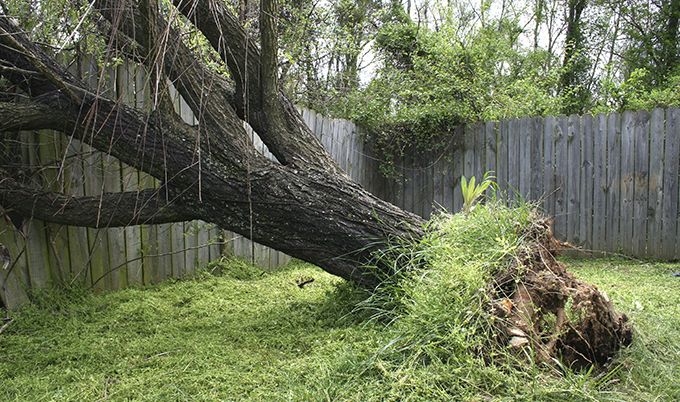
There is one exception to this rule. If you can prove that your neighbor’s tree was diseased or damaged, and that your neighbor was aware of the situation prior to the tree falling, your neighbor will likely need to pay for the damage. The burden of proving this prior knowledge will be on you though, and that means you need to document a concern before the tree actually falls. If one of your neighbors has a tree that worries you, have a friendly conversation with them about the matter first, and follow that conversation up with a text message or email – something with a date and timestamp that you can verify was received.
Keep in mind however, that this situation is a two way street. While it might be a relief to know that you won’t be paying a fortune to make repairs to your neighbor’s property if your tree falls in their direction, your neighbor may also seek to document concerns about a tree that is growing in your yard. If you have any trees that appear diseased or sway unsteadily in mild winds, it would be a smart move to go ahead and consult with an arborist about the tree’s health and long term stability. The money you spend removing dangerous trees could be far less than what you would spend to make repairs. Also keep in mind that falling trees are not just dangerous to property – they can be deadly when they land on houses and cars.
Regardless of what Georgia law says about the ultimate financial responsibility for cleaning up from a fallen tree, many neighbors find that the best thing to do is split the cost of tree removal and/or repairs. When a matter is in everyone’s best interest, working together to remedy the situation is often the solution that will provide the most long-term peace between neighbors.
Who Pays if You Hit an Illegally Parked Car?
Most subdivisions are governed by covenants, with a common rule being that cars cannot park on the street. But of course, in most of our neighborhoods we see vehicles parked along the street quite often. Usually this is a temporary situation, but other times it seems as though this is a permanent parking spot for one of our neighbors. So what happens if you hit such a car, that is parked in an illegal manner? Are you still responsible for damages in the same way you would be if you hit a legally parked car?
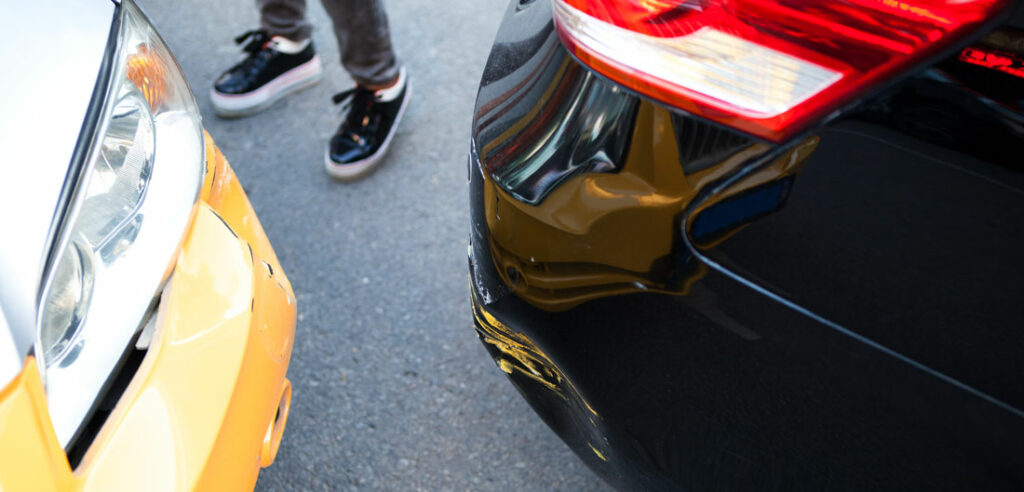
If you do hit a car that you believe is parked illegally, do not immediately move your car if possible. First, grab your phone and take pictures of the scene from every angle. Be sure to include any stop signs or “No Parking” signs that may be present, along with proximity to fire hydrants and driveways. Next call the local police (be sure to indicate there are no injuries or anything that necessitates emergency service), to complete an official accident report.
Whether or not you will be responsible for damages depends on whether the responding officer decides that the illegally parked vehicle was merely creating an inconvenience, or if there was a true safety hazard instead. If the matter was deemed to be only an inconvenience, the car’s owner will likely be ticketed, but you will still be paying for repairs. However, if the officer decides that the car was actually creating a safety hazard, the owner’s insurance will likely be responsible for all repairs, to both their own car and to yours. It is also possible that both of you will be labeled at fault, and that the total cost of damages will be split down the middle, or else both parties will be responsible for their own repairs.
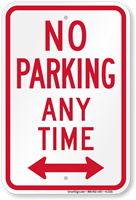
Before a parking situation results in an accident, it is best to try to get rid of the hazard. If you know who owns the car and you feel comfortable approaching them to explain your concerns, try reaching out in this manner first. If you are unsure of the owner or prefer not to address them directly, you can report any vehicles that are frequently parked on the street to your homeowners association. The owner will usually be asked to move their car to their driveway, and repeat offenders may face fines and even towing.
Is a Dog Owner Responsible for all Dog Bites?
You might think that this an easy one, and that anytime a dog bites, the owner is automatically at fault. However, in Georgia in order to assign blame and financial responsibility to the dog’s owner, negligence must be proven. In order to get the dog’s owner to pay for injuries, a victim must be able to prove that the owner already knew that the dog was dangerous and failed to properly restrain the animal. The dog owner could also be held liable if a leash law was violated, for instance if the dog was being walked on the sidewalk by your home, but was not properly leashed at the time.
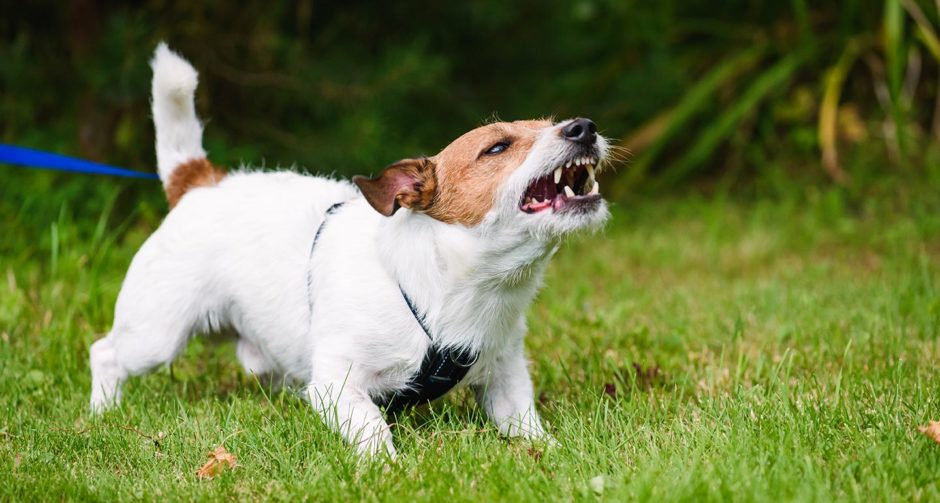
One way that dog owners are able to absolve themselves of responsibility in the event of an attack is to prove that the dog was provoked. If you are shoo-ing the dog away from your property before it uses your flower bed as a bathroom, and the dog then lunges for you, the owner may defend the dog by claiming you were the provocateur. The best way to handle the situation is to proactively document your concerns about any potentially dangerous dogs in your neighborhood. Express your worries to the dog’s owner, and file a complain with your local animal control if the dog in question has in fact been allowed to roam loose in the neighborhood.
What Can You Do About Neighborhood Children Crossing Your Property?
It may seem like your neighbors or their children would have no logical reason to be on your property without an invitation, but many people find out differently after purchasing a home. Perhaps your lot backs up to another neighborhood where school friends live, and your property has been used as a shortcut for years. Or, maybe you live near common neighborhood amenities such as a pool or playground and your neighbors’ children cross a section of your property to get there without giving it much thought. If your home’s prior occupants were aware of this travel and condoned it, it may be difficult to put a stop to the behavior. So what can you do?
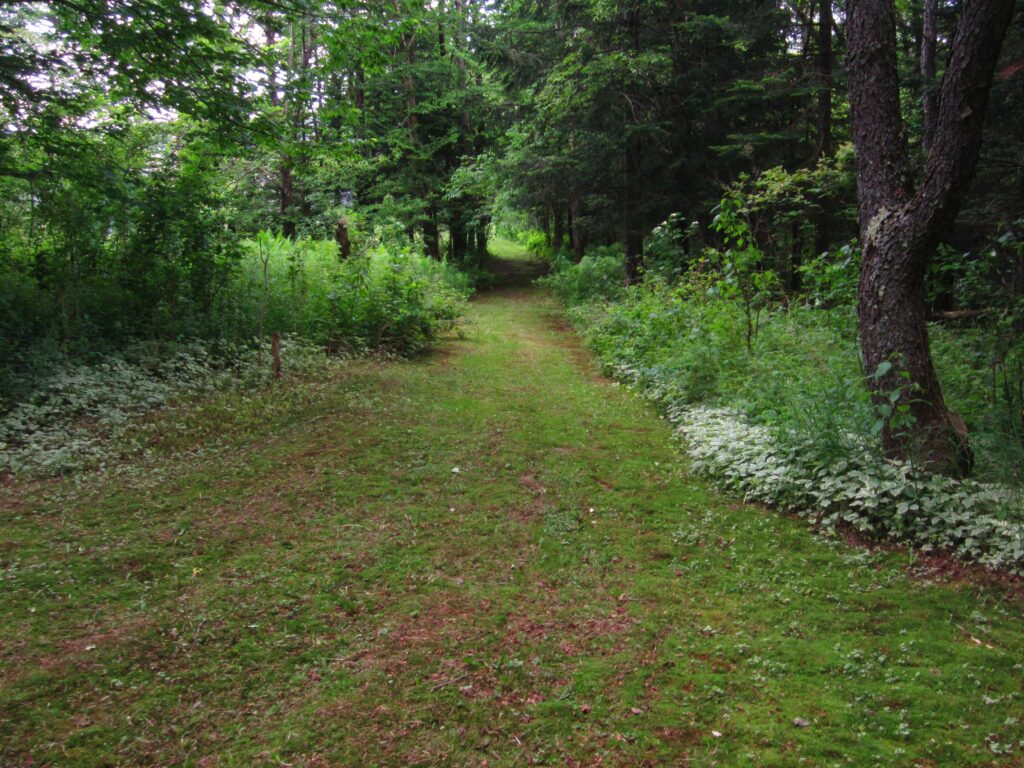
If actual damage has occured to your property, such as to fencing, trees or shrubs, you are entitled to have those damages paid for by the children’s parents. If possible, record video of the kids using your property as a shortcut. Keep in mind that you should not post or publish this footage publicly if minor children are involved. Instead, use this evidence when you seek out the parents so that they see you have proof of the trespassing and damage. Parents are liable for negligent damage up to $10,000 that is caused by their children.
Ideally, you will be able to gather such footage and show the involved parties before any actual damage occurs. Hopefully, making the parents aware of the situation will be enough to remedy it, as they will likely want to avoid paying for damages due to the continued use of your property. You can also assist your cause by placing “No Trespassing” signs along the part of the property that is being used, thereby proving that you have attempted to remedy the situation yourself.

